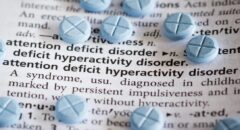
(BlackDoctor.org) — Most of the talk and research about attention deficit/hyperactivity disorder (ADHD) has been directed towards the childhood version. Most people mistakenly believe that the disorder affects only young people, and that symptoms dissipate by the time a person becomes an adult. However, this is simply not the case. Several studies show that attention deficit disorder (ADD), with or without hyperactivity, is a lifelong problem for up to 5% of adults.
A great oversight in the mainstream has been on the connection between childhood ADHD and adult ADHD. Characteristics of the childhood version of the disorder can carry over into adulthood, where different pressures and responsibilities are dealt with, such as relationship problems, trouble paying bills, and difficulty focusing at work. So, how do you know if you or someone you love is at risk? Read on to discover key factors and causes:
Adult ADHD Risk Factors and Causes
Genetics and ADHD
“Far and away, the biggest risk factor for ADHD is genes,” says Scott Kollins, PhD, director of the Duke ADHD Program at Duke University Medical Center. And while the triggers for ADHD are unclear, studies show that one in four children with ADHD have at least one first-degree relative (parent or sibling) with the disorder.
When the distracted, irritable, rambunctious kids with ADHD grow up, many of them still struggle with the disorder. A Swedish study of children with ADHD found that 49 percent of the adults who were diagnosed with the disorder as children continued to have marked symptoms of ADHD at age 22, and 58 percent were abusing drugs or alcohol, living off a disability pension or welfare benefits, suffering from a severe psychiatric disorder, or facing a criminal conviction.
Nearly equal numbers of men and women have ADHD, but many more boys are diagnosed with the disorder than girls. “Boys tend to have more hyperactive and disruptive behaviors, which gets the attention of school administrators and others who can refer them to appropriate care,” says Floyd Sallee, MD, PhD, professor of psychiatry at the University of Cincinnati.
Environmental Contributors for ADHD
From an environmental perspective, in utero exposure to nicotine and heavy metals like lead increases the risk of developing ADHD in childhood. Such substances are toxic to developing brain tissue and can have sustained effects on behavior. “It’s not known how much exposure is necessary, but studies show a definite link,” says Sallee.
The impact of alcohol in utero on the development of ADHD is less clear. Fetal alcohol syndrome is not directly related to ADHD, but the symptoms of it — cognitive impairment and inattention — are similar. In adults who have ADHD, drinking can exacerbate symptoms, so it’s a good idea for those with the disorder to steer clear of alcohol.
When it comes to food, most experts agree that the link between food additives, sugar, and other potential culprits have been overblown. The issue hasn’t been studied in adults, but presumably the effects (or lack thereof) are the same. That said, you’d be hard-pressed to find anyone — ADHD or not — who doesn’t lack focus a few hours after a doughnut-and-coffee breakfast. A balanced diet is key.
Complicating Conditions of ADHD
ADHD does not occur in a vacuum. “The rates of just about every psychiatric disorder are higher among people who have ADHD,” says Kollins. In one study, 87 percent of patients had at least one psychological disorder such as depression or anxiety. People with ADHD are also much more likely to self-medicate with alcohol or drugs and have higher rates of substance abuse than adults without the disorder.
“You can develop secondary anxiety or depression from a lifelong history of demoralization because you can’t do well at your job or you chronically pay your bills late or you have difficulty managing your relationships — all of which are primarily due to your ADHD,” says Sallee. “Most adults don’t go to their primary health-care provider or mental-health professional because of their ADHD. They come because they’re having problems in their life.”
It doesn’t matter which came first — the depression or the ADHD. What matters is that you find a health-care provider who recognizes and treats both.








